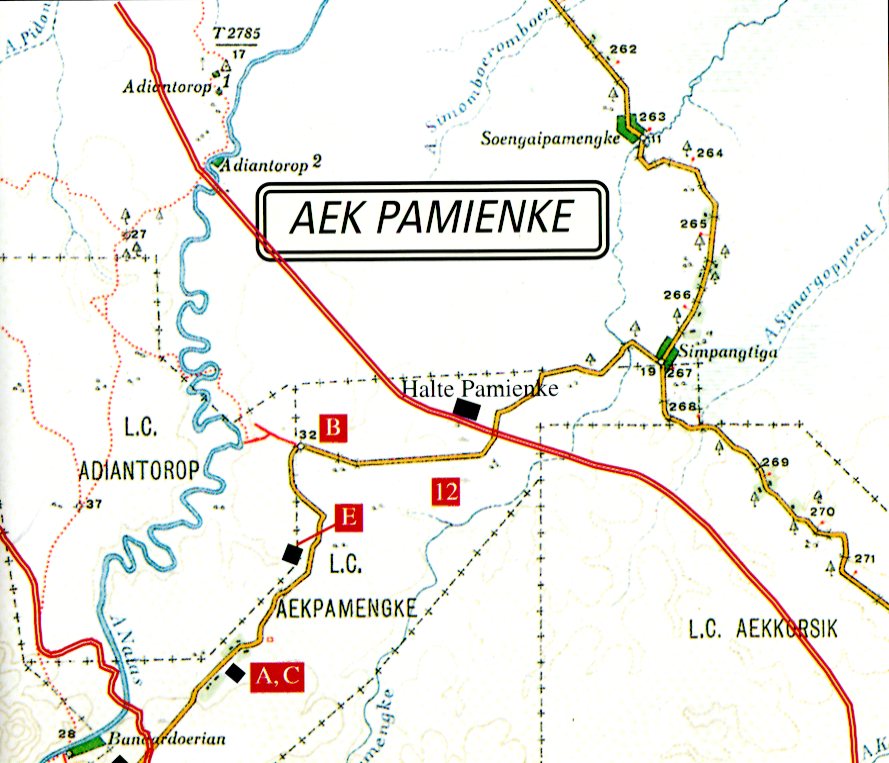Aek Pamienke
Aek Pamienke

Aek Pamienke is the collective name for three Japanese Civilian Prisoner of War Camps established on a former, eponymous rubber plantation in the Rantau Prabat area along the north coast of Sumatra and east of Medan, the island’s capital. When the camps were liberated in August 1945 they contained 4700 women and children.
The three camps were established between April and July 1945, and populated with women and children mostly rounded up from the Medan area and the numerous surrounding rubber plantations. During this process boys older than eight years were separated and housed in a men’s camp.
Camp Populations
End of war women and children’s populations are as follows:
Aek Pamienke I- 1400 (Location B on the map)
Aek Pamienke II- 2000 (Locations A,C on the map)
Aek Pamienke III- 1300 ( Location D on the map)
The only list of internees that survived was for Aek Pamienke III. This is a list for “Hong 1” ( or barrack 1 out of 6 ) of the camp. Noteworthy is the composition of this group of people: 225 all told of whom 78 were adults, 64 were children under the age of 6 and 78 were older children.
Housing consisted of bamboo barracks with palm leaf roofs, and was fenced of with barbed wire . The conditions were utterly primitive, and after the Allies discovered the location on 4 September, 1945, food provisions were air dropped. The camps were evacuated in October to Medan.
Literature
The anthology, Four Years til Tomorrow, includes a haunting story ( Search for memory) written by Miriam Zwaan van Veen about her internment as a child on Sumatra. This includes a description of her journey via other camps to Aek Pamienke, possibly , Pamienke III.
Leave a Reply